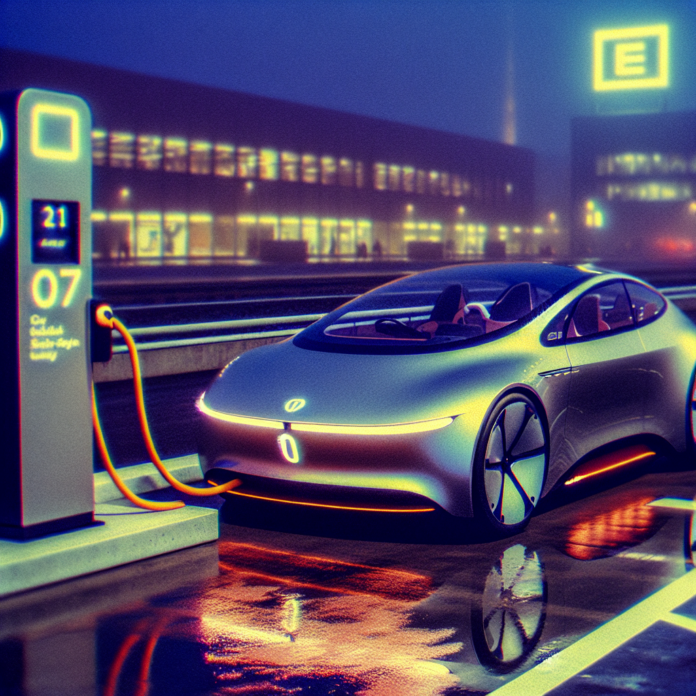How Toyota Plans to Lead the Solid-State Battery Revolution
The automotive industry is preparing for a major transformation with the advent of solid-state batteries (SSBs). Toyota, a pioneer in hybrid and electric vehicle technology, is taking significant strides to dominate this revolution. With promises of faster charging, increased energy density, and longer lifespans, solid-state batteries could redefine the future of electric vehicles (EVs). This article explores Toyota’s ambitious plans to lead the charge in the solid-state battery revolution.
What Are Solid-State Batteries?
Solid-state batteries are an advanced energy storage technology that differs from conventional lithium-ion batteries. Unlike traditional batteries, which use liquid or gel electrolytes, solid-state batteries utilize solid electrolytes. This key difference offers several advantages:
- Higher energy density: SSBs can store more energy in a smaller space, improving battery performance.
- Faster charging: These batteries could substantially reduce charging times, making EVs more convenient.
- Improved safety: The absence of liquid electrolytes minimizes the risk of leakage and fire hazards.
- Longer lifespan: Reduced wear and tear could extend battery durability, lowering overall costs.
Toyota’s Investment in Solid-State Battery Technology
As a front-runner in automotive innovation, Toyota has been investing heavily in solid-state battery research for over a decade. The company holds over 1,000 patents related to solid-state technology, showcasing its commitment to the future of EVs. Toyota aims to integrate SSBs into its vehicles soon, promising a new era of high-performance electric mobility.
Key Areas of Toyota’s Solid-State Battery Development
1. Research and Development
Toyota has partnered with various institutions and battery manufacturers to accelerate the development of SSBs. Through extensive research, the company has made breakthroughs in increasing battery lifespan and reducing defects—two of the primary challenges in large-scale solid-state battery production.
2. Strategic Collaborations
To fast-track commercialization, Toyota has collaborated with Panasonic and other tech-focused partners. These alliances help leverage expertise and share resources to enhance the scalability of solid-state battery production.
3. Roadmap for Mass Production
The Japanese automaker plans to introduce prototype solid-state battery-powered vehicles by 2025. By 2030, Toyota aims to integrate solid-state batteries into mass-produced EVs. With this timeline, Toyota seeks to be one of the first global automakers to bring this game-changing technology to market.
The Benefits of Toyota’s Solid-State Battery-Powered EVs
1. Enhanced Driving Range
One of the biggest drawbacks of current EVs is their limited driving range. Toyota’s solid-state batteries are expected to increase range by up to twice the current lithium-ion batteries, alleviating range anxiety and making EVs more practical for long distances.
2. Shorter Charging Time
Solid-state batteries could drastically shorten charging times. Toyota anticipates that SSB-powered EVs would charge within minutes rather than hours, revolutionizing the convenience of electric mobility.
3. Improved Safety
Traditional lithium-ion batteries carry risks of overheating and potential fires. Solid-state batteries, by contrast, do not rely on flammable liquid electrolytes, making them significantly safer.
4. Durability and Longevity
By minimizing battery degradation, Toyota’s solid-state batteries promise a significantly longer lifespan compared to today’s lithium-ion technology. This extended durability could reduce the total cost of ownership for consumers, making EVs a more cost-effective solution in the long run.
Challenges in Toyota’s Solid-State Battery Transition
Despite the immense potential of solid-state batteries, several hurdles must be overcome before mass production becomes viable.
1. High Production Costs
The materials and manufacturing process required for solid-state batteries are currently expensive. Toyota is investing in cost-reduction strategies to make the technology more affordable for mainstream consumers.
2. Scalability and Manufacturing Feasibility
Scaling up production to meet global demand remains a critical challenge. The transition from laboratory research to full-scale manufacturing requires technological breakthroughs, supply chain optimizations, and advanced quality control measures.
3. Infrastructure and Market Readiness
Widespread adoption of solid-state battery EVs will also require an upgraded EV infrastructure, including better charging networks, supply chains, and regulatory approvals to support the new technology.
Competition in the Solid-State Battery Market
While Toyota is leading the charge in solid-state battery development, it faces competition from other companies. Automakers like Volkswagen, Ford, and BMW, along with battery manufacturers like QuantumScape and Solid Power, are also investing in solid-state battery research. However, Toyota’s early start and extensive patent portfolio give it a significant competitive advantage.
The Future of Solid-State Batteries and Toyota’s Role
The widespread adoption of solid-state batteries could redefine the electric vehicle market. Toyota’s dedication to this emerging technology positions it at the forefront of the EV revolution. By delivering higher efficiency, faster charging, and improved safety, Toyota’s solid-state advancements could potentially disrupt the market and set new industry standards.
As Toyota continues to innovate and refine its solid-state battery technology, EV enthusiasts and consumers eagerly anticipate its first commercial rollout. If successful, Toyota’s leadership in this arena could ignite a transformation that accelerates the global shift toward sustainable transportation.
Final Thoughts
With its extensive research, strategic partnerships, and commitment to innovation, Toyota is well on its way to leading the solid-state battery revolution. While challenges remain in cost reduction and large-scale production, the potential benefits of solid-state batteries far outweigh these obstacles. If Toyota succeeds in bringing solid-state battery EVs to mass production, it could change the course of the electric vehicle industry forever.
Stay tuned as Toyota continues to push the boundaries of EV technology, promising a greener, safer, and more efficient future for transportation.


